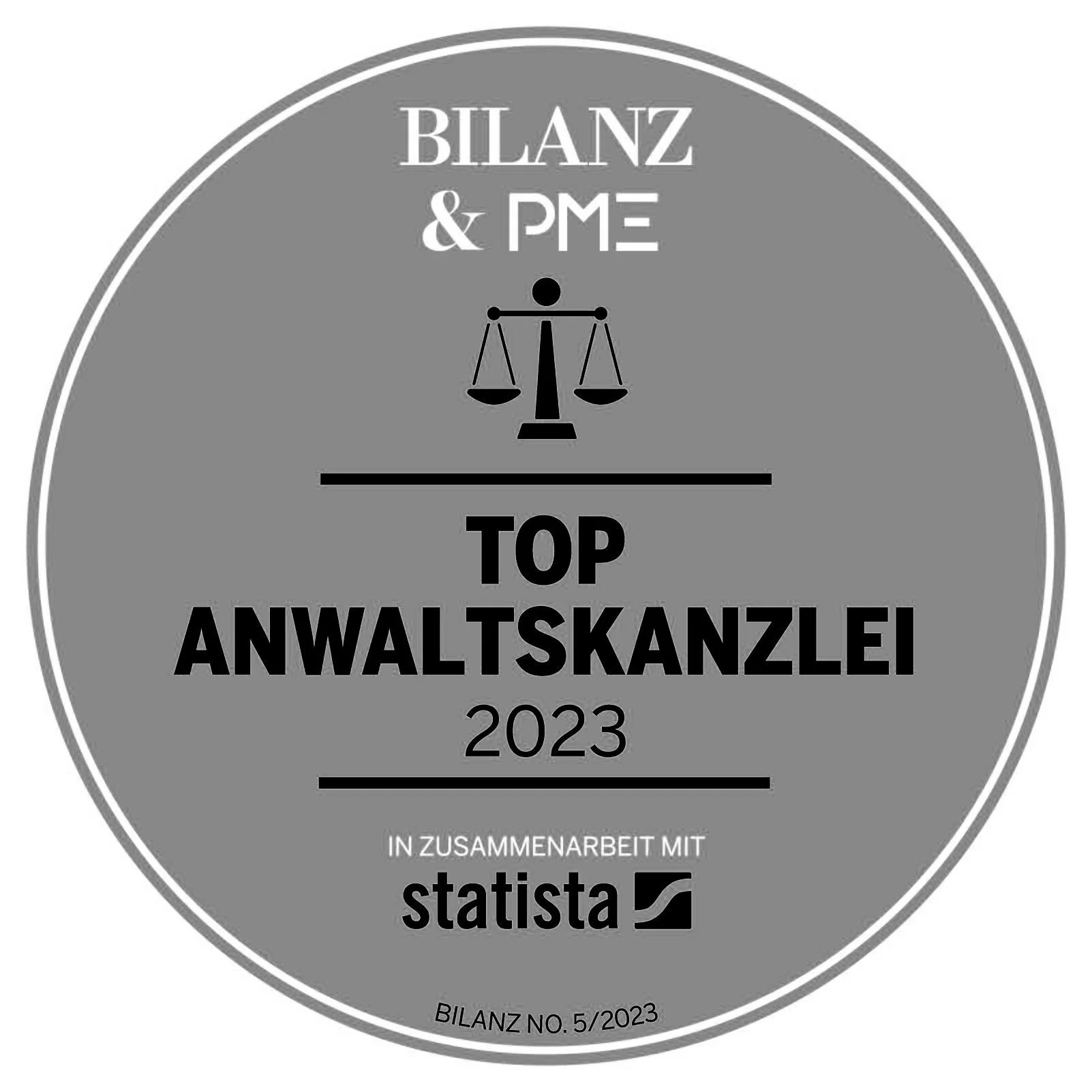In the Bilanz Ranking 2023, Wicki Partners AG was once again named TOP law firm in Switzerland, confirming its positioning as a specialized commercial law firm. From over 25,000 recommendations from clients and colleagues, the Handelszeitung, in cooperation with Statista, selected the best law firms.
Read moreRent increases can occur for a variety of reasons and can affect any tenant. This makes it all the more important for tenants to know their rights and the limits of the law.
Read moreA recent decision by the Federal Court of Justice of the Federal Republic of Germany on access to an e-mail is also likely to have implications for companies throughout the DACH region.
Read moreSwiss chattel mortgage law has remained essentially unchanged since the Civil Code came into force in 1912. More than practically any other legal system, it emphasises the 'Faust principle': this principle stipulates that security interests in movable property can only be validly created if the collateral provider gives up possession of the property.
Read moreWe are pleased to support you in the legally compliant introduction of digital contract signing as well as in other digitalization projects. We can draw up appropriate standard clauses or a framework agreement for you and check which contract forms still require a written or QES signature.
Read moreCan my supervisor keep me busy with cleaning, tidying up and preparation work during my apprenticeship? And if so, to what extent? This question is addressed in the following article.
Read moreThe federal government bases the order for mandatory quarantine on Art. 35 of the Epidemics Act (EpG). Anyone entering Switzerland from certain areas with an increased risk of infection (risk area) must undergo a ten-day quarantine. Employees who are subject to quarantine and their employers are likely to be increasingly confronted with the question of the obligation to continue to pay wages...
Read moreMany small and medium-sized enterprises still find themselves burdened with the full cost of business rent, despite ongoing losses in turnover due to the COVID-19 protection measures. Now, however, a solution is emerging in parliament.
Read moreHow the impact of Covid-19 on a contractual relationship is dealt with under Swiss law depends primarily on the language of the contract. If it contains a specific "force majeure" clause dealing with a pandemic, that clause applies. Of course, such explicit clauses have not been widely agreed prior to the pandemic. In this case the contract has to be construed in order to determine the intent of the parties, and the Swiss Code of Obligations (CO) applies if it is found that the parties have not made a provision dealing with the impact of a pandemic.
Read moreThe Federal Council provided information on the COVID-19 measures in tenancy law on 27 March 2020. Some issues have been clarified with the new Rent and Lease Ordinance. However, many urgent problems remain unresolved.
Read moreDue to the closure order in COVID-19 Regulation 2, many of those affected can no longer fulfil their contracts. What is the legal situation in the case of continuing obligations, e.g. a fitness subscription? These questions are explored in the following article.
Read moreMany tenants of a business space are currently facing a financial problem: They had to close their business due to COVID-19 Regulation 2 and have not recorded any turnover since then. However, the tenancy agreement still continues. How should this problem be classified legally?
Read moreThe cancellation of a major event due to COVID 19 measures could at best be a case of application of Art. 119 CO (impossibility without fault).
Read moreBasic information on applying for short-time work and short-time work compensation (KAE).
Read moreThe arrangement of home offices has legal aspects, but these can be regulated temporarily and pragmatically with minimal effort.
Read moreThe employer's access to e-mail addresses in the name of an employee is problematic from the point of view of personal rights and data protection and must be regulated in a set of rules.
Read moreCorona and COVID-19 impose several additional obligations on employers. How can workers be protected without productivity suffering? What is the obligation to pay wages? Can home office be ordered?
Read moreAre the effects of the coronavirus on the ability to provide contractually guaranteed services a case of force majeure?
Read moreThe following checklist contains some helpful hints for the legally secure selection of an IT provider as well as for the contract review. However, the checklist does not claim to be exhaustive, as different and individual questions arise with every IT procurement.
Read moreShort answer: No!
In contrast to Germany, Swiss labour law does not provide for maximum temperatures. So work must still be done at temperatures above 35 degrees Celsius.
Read more


















